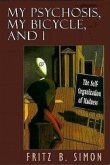In 1895 not a single case of dementia praecox was reported in the United States. By 1912 tens of thousands of people with this diagnosis were locked up in asylums, hospitals, and jails. By 1927 it was fading away. This book explains how such a terrible disease could be discovered, affect so many lives, and then turn out to be something else.
Hinweis: Dieser Artikel kann nur an eine deutsche Lieferadresse ausgeliefert werden.
Hinweis: Dieser Artikel kann nur an eine deutsche Lieferadresse ausgeliefert werden.
Between 1895 and the 1930s, tens of thousands of Americans were diagnosed with dementia praecox-an 'incurable' psychosis described by German psychiatrist Emil Kraepelin. The diagnoses then petered out. Psychologist Richard Noll traces the trajectory of this near-forgotten disorder, showing how it became the first specified disease of psychiatry, legitimizing that field's place in medicine. Noll also shows how the debates today around the successor to dementia praecox, schizophrenia, are leading to a trend in psychiatry towards diagnoses that could fit better with genetics.
-- Nature
The wonderful book, American Madness, [is] an artful analysis of the rise and fall of the label 'dementia praecox' from its promising birth in 1896 to its unlamented death in 1927... Though set in the past, the lessons of this book are as fresh as the controversies over the new edition of the Diagnostic and Statistical Manual of Mental Disorders (DSM V) and the very future of psychiatry.
-- Allen Frances New Scientist
A pathbreaking account of the reception of Kraepelin's notion of dementia praecox in the United States.
-- Eric J. Engstrom Current Opinion in Psychiatry
In this richly detailed book, Richard Noll explores the historical predicament of psychiatry through the efforts of America's early twentieth century psychiatric elite to integrate their field with the main currents of an emergent scientific medicine by creating a scientific classification of mental illness... Historians of American psychiatry, pulled toward the historiographical black hole of conflicts between partisans of Freudian psychoanalysis and the bio-pharmacological turn of the past few decades, have paid far too little attention to the influence of German psychiatrist Emil Kraepelin in the first four decades of the twentieth century. Noll's book goes a long way toward remedying that... The great strength of this book is that it invites intellectual engagement. Noll does not allow his own interpretive commitments to overwhelm the narrative; his representation of the world of American psychiatry during this critical period is so rich and nuanced that readers are able to develop alternative interpretations even as they consider his. In other words, it generates much more light than heat and should be widely read by historians, neuroscientists, clinicians, social scientists and educated general readers interested in understanding medicine's efforts to come to terms with mental illness. Given the issues at play in the upcoming revision of the DSM, a work of mature, responsible historical scholarship is a timely and valuable contribution to the broad discussion we need to be having about what is at stake in psychiatric classification.
-- Jesse Ballenger H-Madness
Richard Noll's American Madness is an important book that deserves a wide readership among those interested in understanding the development of American psychiatry between 1896 and the 1930s.
-- Andrew Scull Journal of American History
There is something about the U.S. mania for madness that needs understanding, as it imperils us all. Noll clearly had to write this book.
-- David Healy Times Higher Education
Noll's historical analysis of the difficulties faced by clinicians treating mental illness sensitively bridges the distance between cultural construction of disease concepts and the experience of clinical practice.
-- Scott Vieira Library Journal
Noll is adept at portraying both the human and sociological sides of this story... [A] capacious narrative.
-- Evan McMurry Bookslut
American Madness is an elegantly written account of American psychiatry in the early twentieth century, which shows that diagnostic wrangling one hundred years ago was just as spirited as DSM revisions today.
-- E. Fuller Torrey, founder of The Treatment Advocacy Center
American Madness is a major contribution to both history and psychiatry. Noll discredits the widespread belief that dementia praecox was 'the old name' for schizophrenia, and that schizophrenia has always been a real, unitary, stable, and recognizable disease. Noll's book offers a warning about the dangers involved in creating diagnostic categories that have real effects on peoples' lives.
-- Gerald N. Grob, author of The Deadly Truth: A History of Disease in America
-- Nature
The wonderful book, American Madness, [is] an artful analysis of the rise and fall of the label 'dementia praecox' from its promising birth in 1896 to its unlamented death in 1927... Though set in the past, the lessons of this book are as fresh as the controversies over the new edition of the Diagnostic and Statistical Manual of Mental Disorders (DSM V) and the very future of psychiatry.
-- Allen Frances New Scientist
A pathbreaking account of the reception of Kraepelin's notion of dementia praecox in the United States.
-- Eric J. Engstrom Current Opinion in Psychiatry
In this richly detailed book, Richard Noll explores the historical predicament of psychiatry through the efforts of America's early twentieth century psychiatric elite to integrate their field with the main currents of an emergent scientific medicine by creating a scientific classification of mental illness... Historians of American psychiatry, pulled toward the historiographical black hole of conflicts between partisans of Freudian psychoanalysis and the bio-pharmacological turn of the past few decades, have paid far too little attention to the influence of German psychiatrist Emil Kraepelin in the first four decades of the twentieth century. Noll's book goes a long way toward remedying that... The great strength of this book is that it invites intellectual engagement. Noll does not allow his own interpretive commitments to overwhelm the narrative; his representation of the world of American psychiatry during this critical period is so rich and nuanced that readers are able to develop alternative interpretations even as they consider his. In other words, it generates much more light than heat and should be widely read by historians, neuroscientists, clinicians, social scientists and educated general readers interested in understanding medicine's efforts to come to terms with mental illness. Given the issues at play in the upcoming revision of the DSM, a work of mature, responsible historical scholarship is a timely and valuable contribution to the broad discussion we need to be having about what is at stake in psychiatric classification.
-- Jesse Ballenger H-Madness
Richard Noll's American Madness is an important book that deserves a wide readership among those interested in understanding the development of American psychiatry between 1896 and the 1930s.
-- Andrew Scull Journal of American History
There is something about the U.S. mania for madness that needs understanding, as it imperils us all. Noll clearly had to write this book.
-- David Healy Times Higher Education
Noll's historical analysis of the difficulties faced by clinicians treating mental illness sensitively bridges the distance between cultural construction of disease concepts and the experience of clinical practice.
-- Scott Vieira Library Journal
Noll is adept at portraying both the human and sociological sides of this story... [A] capacious narrative.
-- Evan McMurry Bookslut
American Madness is an elegantly written account of American psychiatry in the early twentieth century, which shows that diagnostic wrangling one hundred years ago was just as spirited as DSM revisions today.
-- E. Fuller Torrey, founder of The Treatment Advocacy Center
American Madness is a major contribution to both history and psychiatry. Noll discredits the widespread belief that dementia praecox was 'the old name' for schizophrenia, and that schizophrenia has always been a real, unitary, stable, and recognizable disease. Noll's book offers a warning about the dangers involved in creating diagnostic categories that have real effects on peoples' lives.
-- Gerald N. Grob, author of The Deadly Truth: A History of Disease in America







